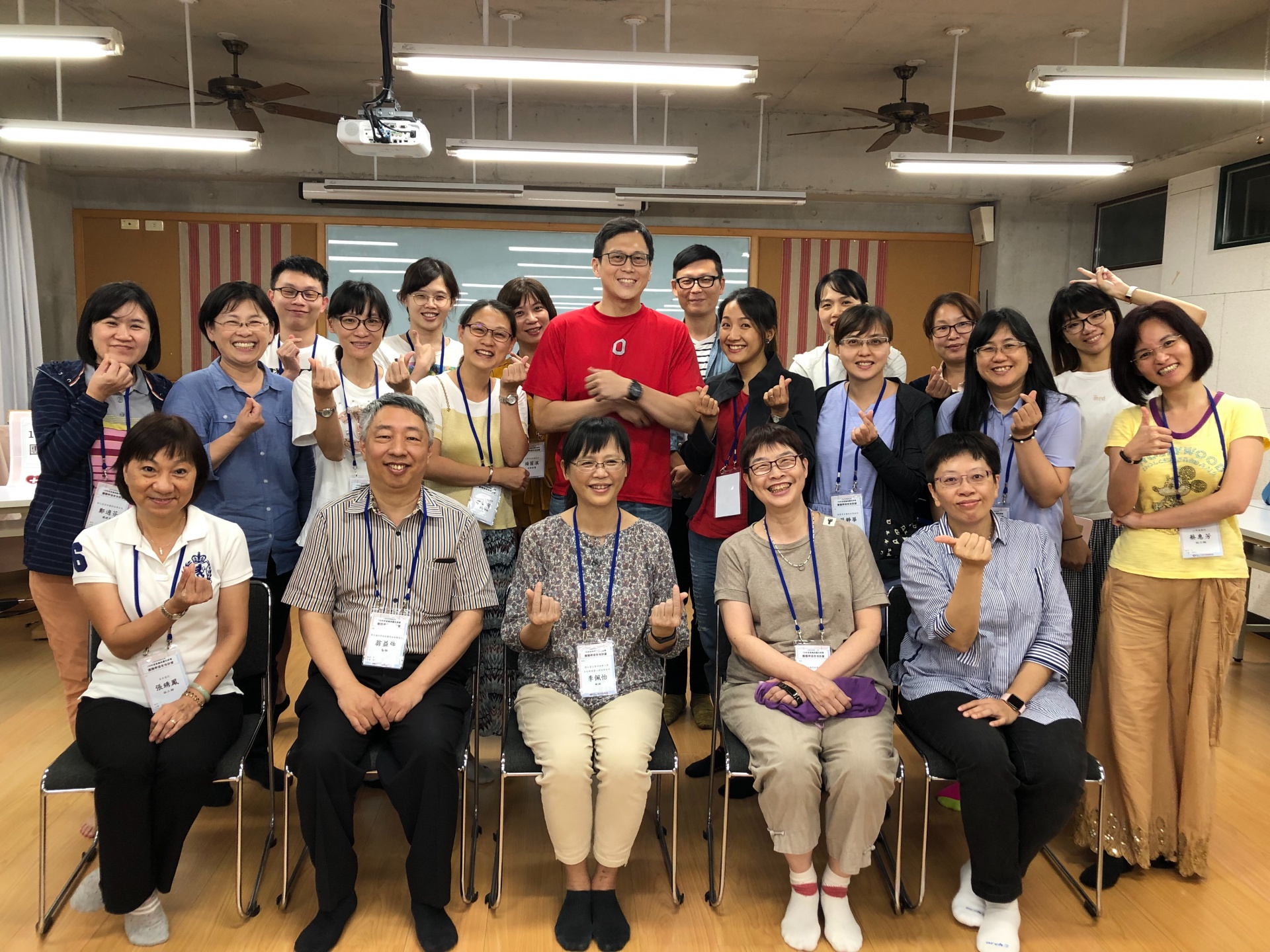
As patients’ enter their terminal stage of illness, along with the decline of physical function, their inner spiritual needs often heighten in response. Thus, the caregiver must be sensitive to the spiritual needs of the patients, and be calm and sensitive in supporting them because sometimes the patients will find inner resolution all on their own.
Since spiritual care is full of challenges and uncertainties, it often becomes a trial for the hospice team members in clinical care. To this end, the Hospice Foundation of Taiwan (“HFT”) has been actively involved in providing training courses such as the "Spiritual Academy." Since HFT’s inception, it has been committed to improving the spiritual care knowledge and skills of medical professionals. With these skill sets, they are able to better help patients prepare early for their deaths, reduce their fear of death, assist them in completing their wills, and build up their inner wellbeing.
This year, two "Hospice Spiritual Caregiver Training Courses" were held for medical staff to explore in depth the definition of spirituality, assessment for needs, treatment, and implementation. Before the course, professionals who had received spiritual care training from HFT over the years and have continuously attended in the courses and also assisted in clinical services were invited to participate in the "Group Leadership Training Camp," which lasted three days and two nights. After the training, they served as team leaders to lead group discussions using role playing, making the course more applicable.
Five social workers who participated in the "Group Leadership Training Camp" were invited to share their thoughts with the readers of this issue regarding spiritual care and the courses they took. They are from different hospitals and backgrounds.
Turning Spiritual Power into Capability for Progress
Despite the daily grind of work in facing numerous patients and their families who are suffering with no solutions, I have always reminded myself that since this is a job that helps others, I must not allow my heart to grow cold and calloused. Thus, I take just a little spare time everyday to check on whether my heart is still warm or not. This is how a spiritual lesson for me started one evening.
I realized that even if we are proficient in helping others, when we face ourselves as narrators, we will sort things out clearly as we transform from the active role into a passive listener, resulting in seeing the courageous choices we have to make. We work hard in climbing the spiritual obstacles as we bounce between reality and expectations, whether we charge ahead or we take a step back, we don’t give up. After all, "significance" is a collection of experiences. One has to feel and understand that: "It’s not what life brings me, but what I want to accomplish."
As we adjust the pace, the overall motivation also follows. The spiritual connection comes not only from ourselves, but also from the field in which space and time are interwoven. Why is there such a spiritual training camp? It stems mainly from the foundation's awareness of the clinical staff’s needs for spiritual care. This unexpected gift and rare encounter produced a chapter on hospice spiritual seeds called “Adherence to Transforming Spiritual Power into a Nutrient for the Beginning” by Tsai Hweifang (Social Worker at Tri-Service General Hospital).
During one activity at the training camp, everyone used yarn to mark off their comfort zones, and then confided to their partners within these boundaries. Later, they shouted out their frustrations, fears and anger without the everyday mask of politeness. "Let anger surface as a kind of emotion; reveal the fear and pain behind it; let these emotions show and breath; and enjoy the peacefulness, wisdom, and healing after the painful disclosure, so the inner spirits can flow freely." These are the exact words Ms. Yu Shi said in her class which I couldn't agree with more.
On Monday, after returning to the daily routine of life, Ms. Yu Shi sent me a message asking me to share my feedback and experiences of the training camp. Here is my response: “I feel that the training has provided me with internal strength and constant support for the busyness at work. Furthermore, I have come to realize the warmth and tranquility of the spirit.”

